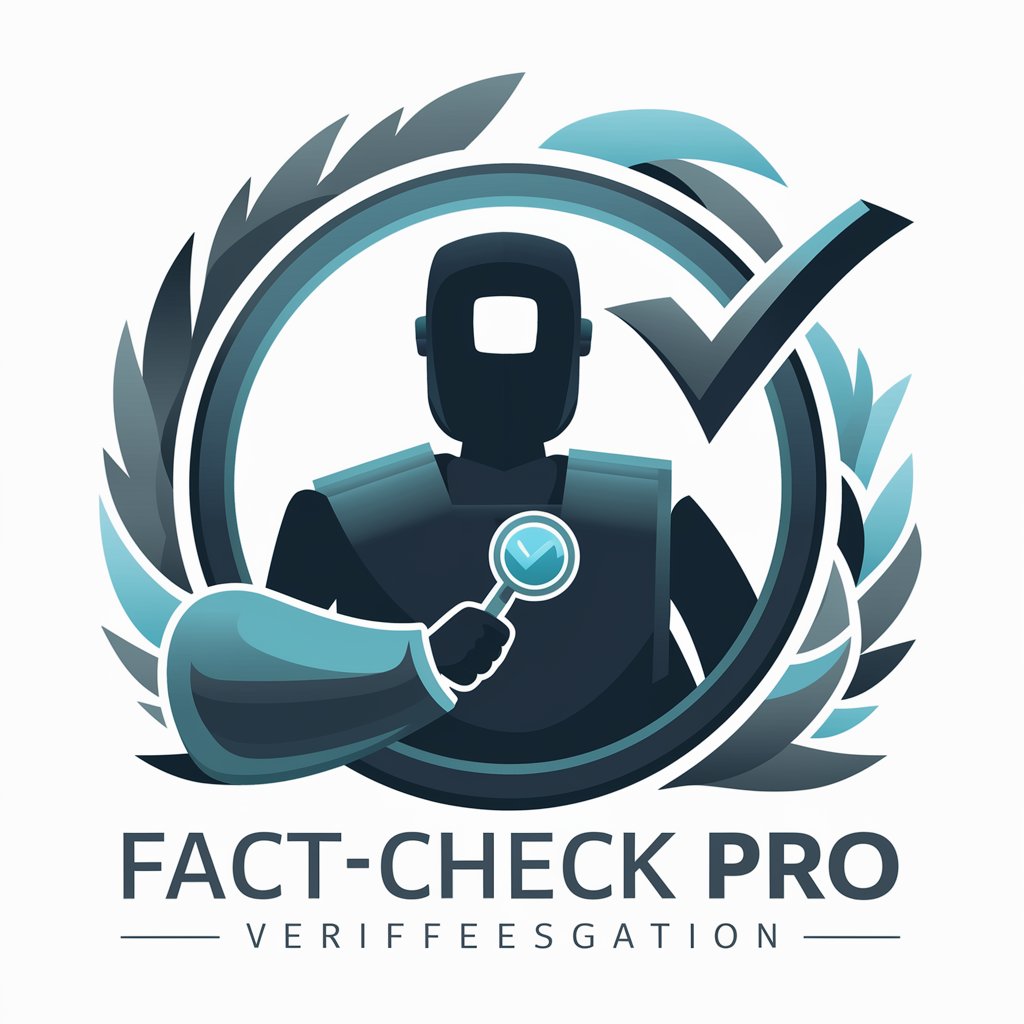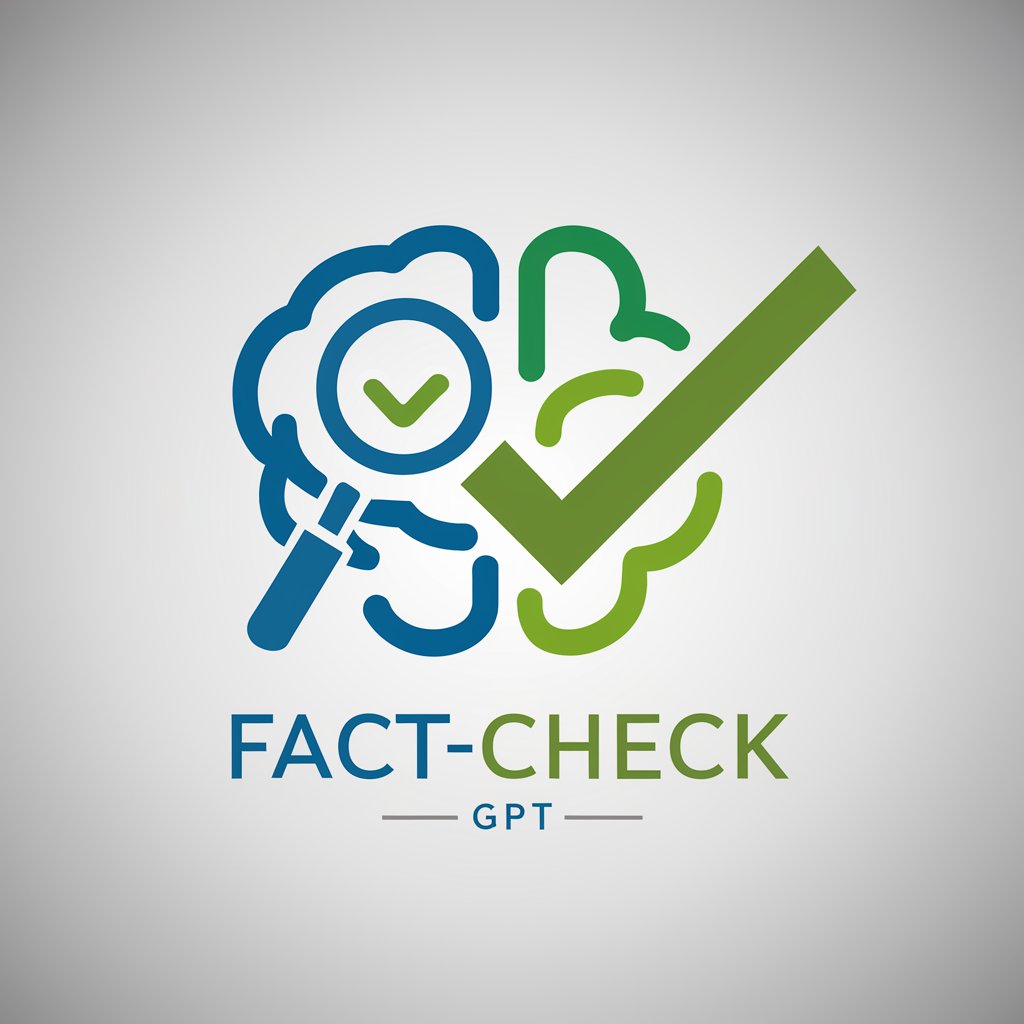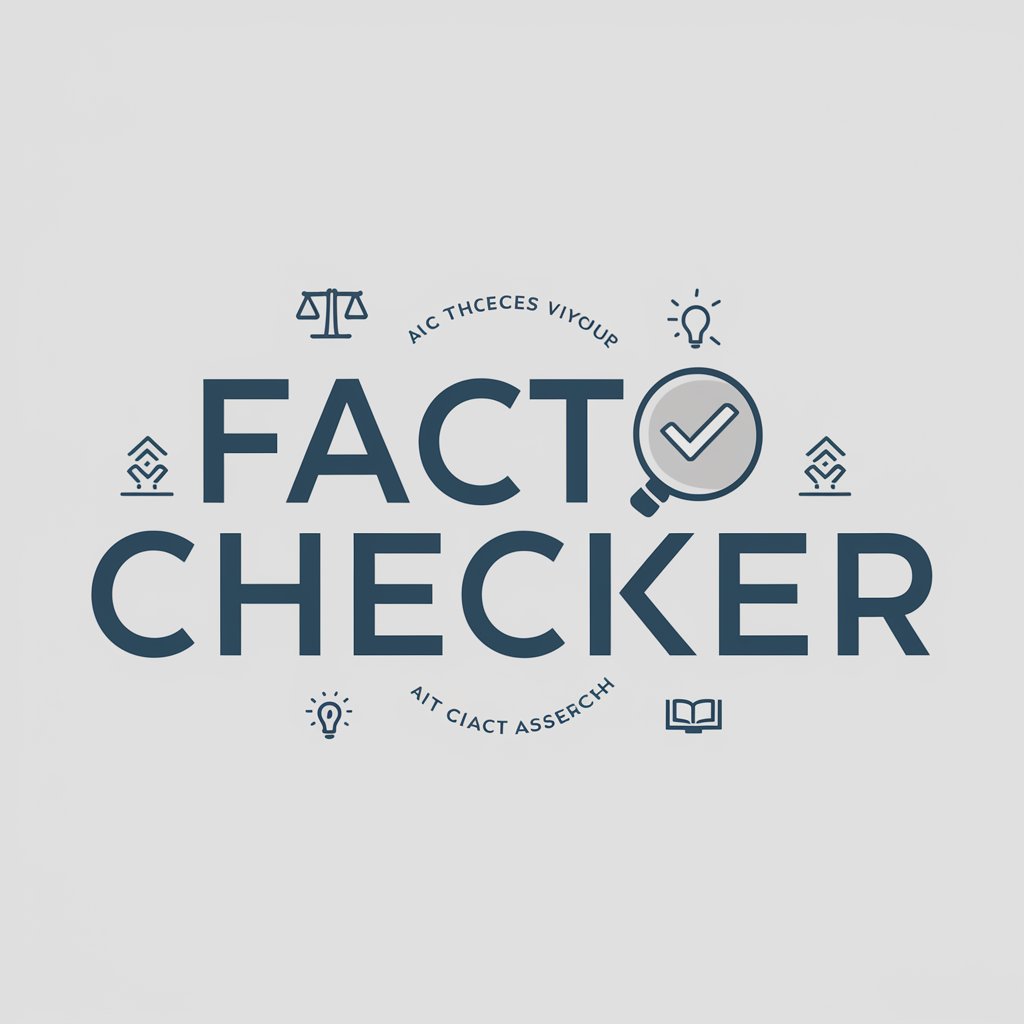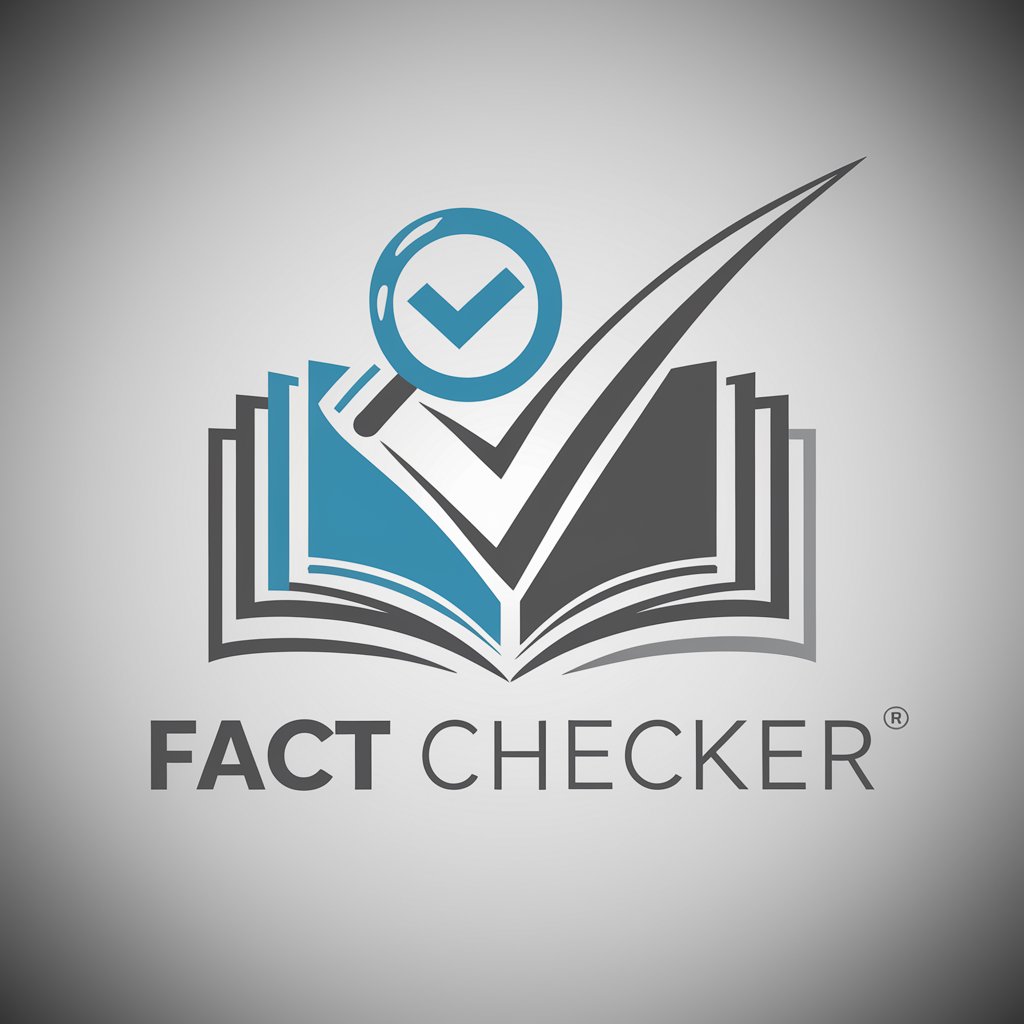
Fact-checking - AI-Powered Verification
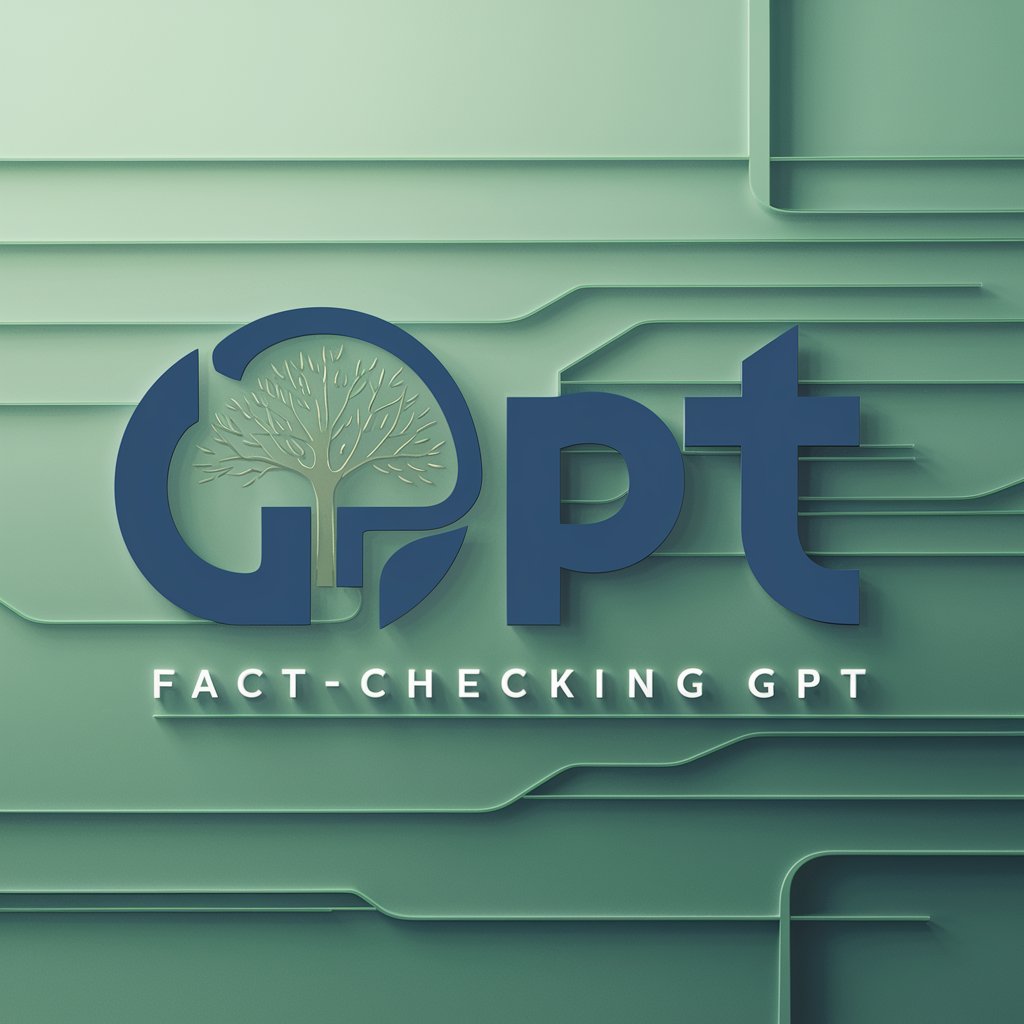
Hello! I'm here to verify facts and ensure accuracy.
AI-driven Fact Validation
Investigate the accuracy of the claim that...
Verify the details surrounding the statement that...
Check the validity of the information provided about...
Confirm the truthfulness of the assertion that...
Get Embed Code
Introduction to Fact-checking
Fact-checking is a critical process aimed at verifying the accuracy and truthfulness of statements, claims, and information presented in various forms of media, including news articles, reports, speeches, and social media posts. The primary purpose of fact-checking is to prevent misinformation and disinformation from spreading, thereby ensuring that the public receives accurate and reliable information. Fact-checking involves a detailed and systematic evaluation of facts against credible sources, data, and evidence. For example, if a politician claims that their country has the highest employment rate in history, fact-checkers will scrutinize official employment statistics, historical data, and relevant studies to confirm the accuracy of this statement. This process helps maintain the integrity of public discourse and supports informed decision-making. Powered by ChatGPT-4o。

Main Functions of Fact-checking
Verification of Claims
Example
Checking the veracity of a politician's statement on climate change policies.
Scenario
A politician claims that their country has reduced carbon emissions by 50% in the past decade. Fact-checkers would examine environmental reports, governmental data, and international databases to confirm or refute this claim.
Analyzing Statistics and Data
Example
Evaluating the accuracy of reported crime rates in a city.
Scenario
A news report suggests a significant drop in crime rates. Fact-checkers analyze crime statistics from official law enforcement agencies and compare them with previous years' data to assess the report's accuracy.
Investigating Historical Context
Example
Assessing the historical accuracy of claims made about historical events.
Scenario
In a debate, a figure claims a specific event led to the end of a historical conflict. Fact-checkers consult historical records, academic papers, and expert analyses to verify the claim's context and accuracy.
Evaluating Source Reliability
Example
Determining the credibility of sources cited in a news article.
Scenario
A controversial article cites several studies to support its arguments. Fact-checkers examine the methodologies, funding, publication venues, and authors' backgrounds of these studies to evaluate their reliability and potential biases.
Ideal Users of Fact-checking Services
Journalists and Media Professionals
These individuals rely on accurate information to report news and inform the public. Fact-checking services help them verify the authenticity of their sources and claims, ensuring their reporting maintains high standards of integrity and trustworthiness.
Policymakers and Government Officials
For these users, making decisions based on accurate data is crucial. Fact-checking services provide them with validated information, helping to guide policy decisions and public statements.
Academic Researchers and Students
Accuracy and credibility are fundamental in academia. Fact-checking aids researchers and students in verifying the information they cite in their work, ensuring it is reliable and supports their arguments effectively.
Public and Voters
In an era of widespread misinformation, the general public benefits significantly from fact-checking services. These services help individuals discern truth from falsehood, promoting informed decision-making and critical thinking, especially during elections and when engaging with contentious issues.

Guidelines for Using Fact-checking
1
Visit yeschat.ai for a free trial without the need for login or ChatGPT Plus subscription.
2
Identify the text or statement you want to verify. Ensure you have the complete context to increase the accuracy of the fact-checking process.
3
Submit the text to the Fact-checking tool. Be clear and precise about the information you need verified to optimize the tool's performance.
4
Review the results provided by the tool. The tool will present you with verified information, sourcing details, and the context of the verification.
5
Use the provided information to inform your understanding or decision-making. Always cross-reference with additional sources if necessary for critical applications.
Try other advanced and practical GPTs
Penny, for Financial Statements Checking
AI-driven Financial Insight

patenttesterv1
Deciphering Patents with AI Power

Fact-Checking AI
Empowering Truth with AI
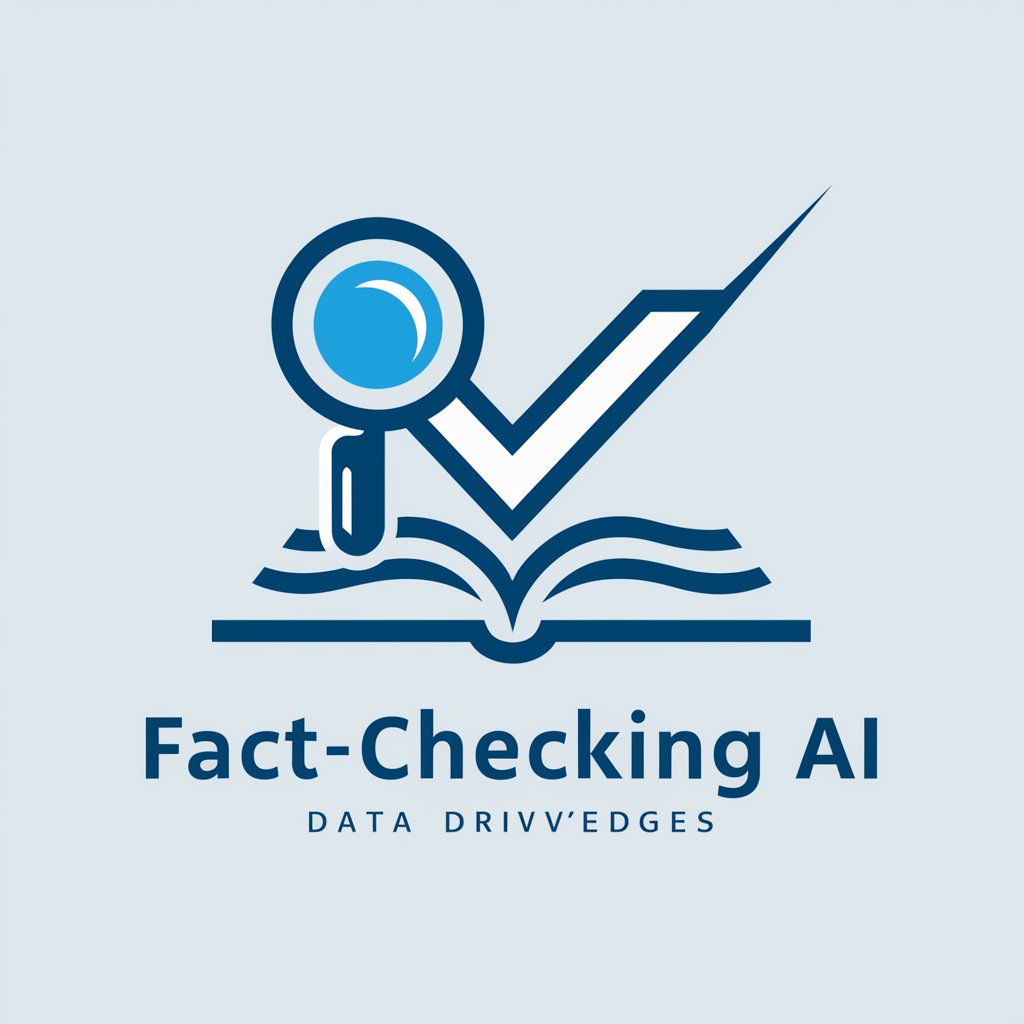
Technocrat
Empowering Decisions with AI

TaskAssistant
Simplify tasks with AI efficiency
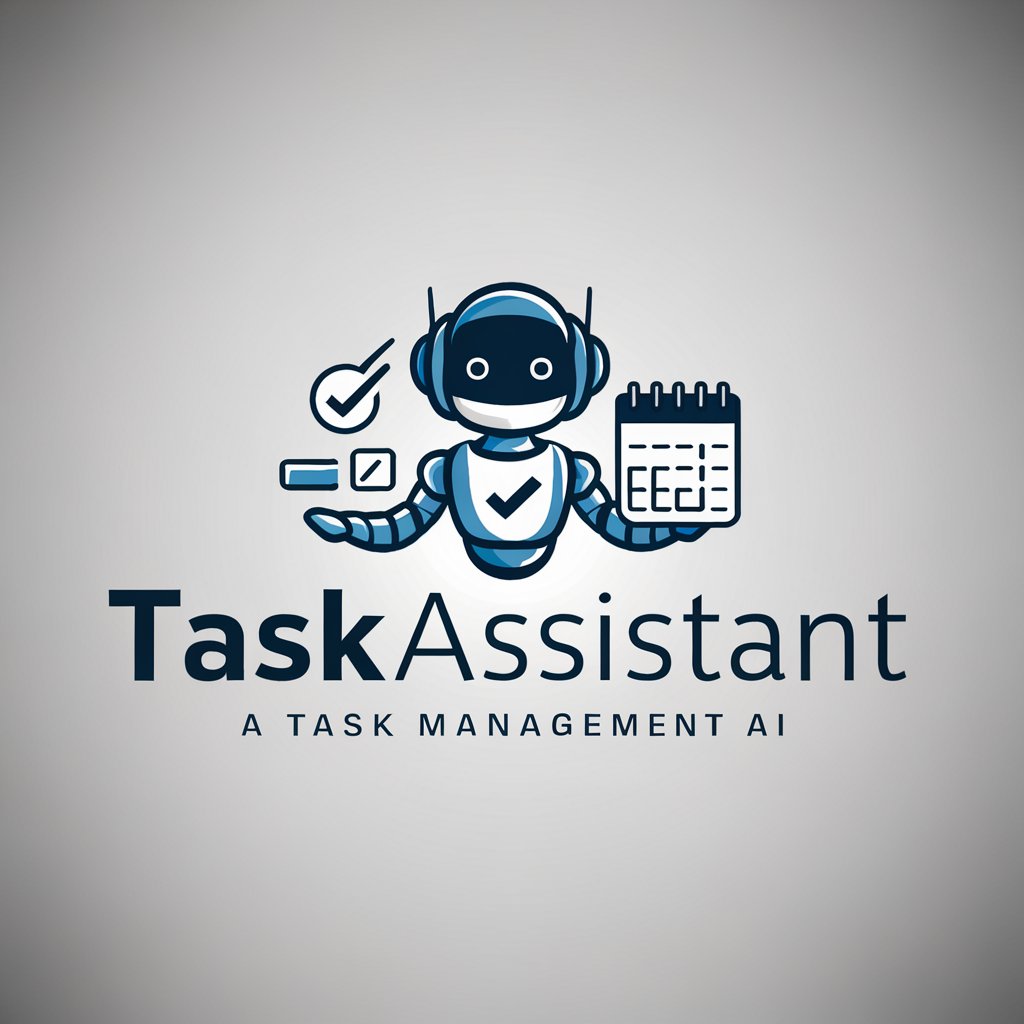
Mastering Video Cuts
Elevate Your Editing with AI-Powered Precision

Ink Scribe
From Words to Ink: AI-Powered Tattoo Designs

INK GPT
Revolutionize Your Ink with AI
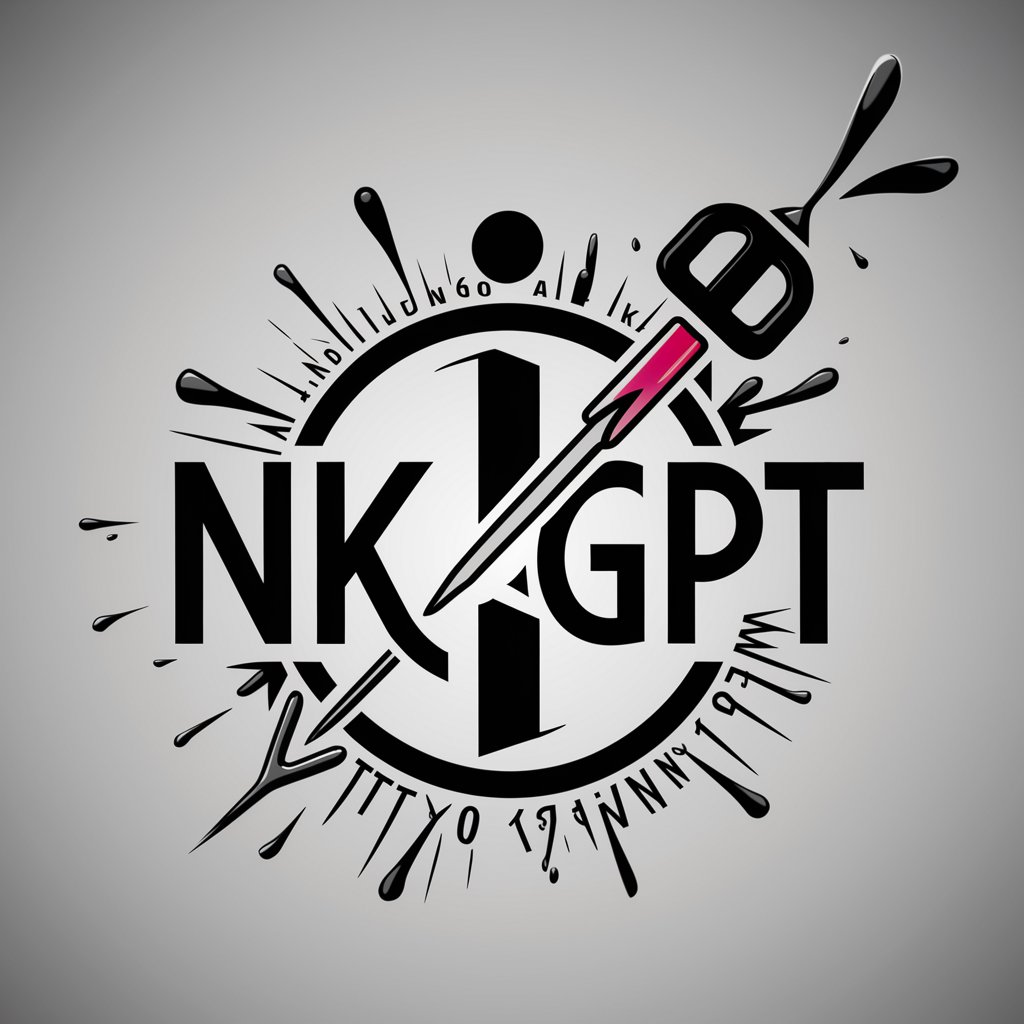
Artful Ink
Ink Your Imagination: AI-Powered Tattoo Designs

Note Maker
Empowering Education with AI

Psyche Explorer
Navigating the Psyche with AI Power

Syntax Sensei
AI-driven coding mentorship at your fingertips

Detailed Q&A about Fact-checking
What is the primary purpose of the Fact-checking tool?
The primary purpose of the Fact-checking tool is to verify the accuracy of information, providing users with validated facts and the sources from where the information was verified.
Can Fact-checking help in academic research?
Yes, Fact-checking can be an invaluable tool in academic research, offering a way to quickly verify data, claims, and references, ensuring the reliability and credibility of your work.
Is Fact-checking useful in media consumption?
Absolutely, Fact-checking is crucial in media consumption, helping to discern truth from misinformation in news reports, articles, and other media, fostering informed and critical consumption.
How does Fact-checking handle ambiguous or complex information?
Fact-checking employs advanced AI algorithms to interpret, analyze, and verify complex or ambiguous information, but it's always recommended to review the sources and context it provides.
Can businesses use Fact-checking?
Businesses can leverage Fact-checking to verify industry data, competitor claims, or market statistics, enhancing strategic decision-making and maintaining corporate integrity.
